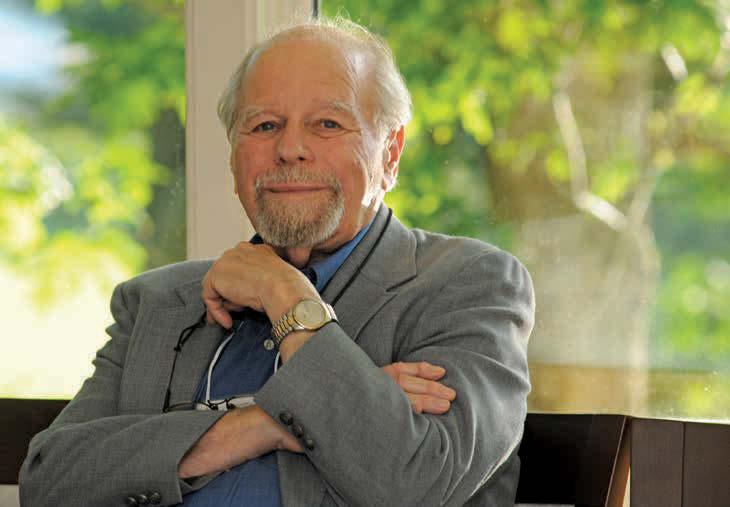
3 minute read
Gerry Schamess' Mark
Gerry Schamess’ Mark
Beloved mentor remembered as approachable and generous
For more than three decades, Gerald Schamess was a beloved teacher, mentor, advisor, consultant and friend to generations of SSW students. In these hundreds of relationships, on campus and off, as well as through his scholarly writing and clinical practice, Schamess left an indelible mark on the field of social work.
Known to many as Gerry, he died June 28 at the age of 85. Colleagues and former students remembered him as a teacher and clinician who was exceedingly generous with his time, compassionate, empathetic, and curious about people, and humble and funny with an ironic wit.

During her tenure as dean, Gabel said she and Schamess and Associate Dean Dorcas Bowles, M.S.W. ’60, ran the School as an administrative team, with Schamess serving as clinician in chief. At a time when the School had a near exclusive focus on the clinical side of the profession with little attention given to social policy, “Gerry had a foot in both,” she said.
“He worked closely with the students, and he was revered by them,” said Katherine Gabel, A.B. ’59, M.S.W., Ph.D., J.D., dean of the School from 1976 to 1985. “He was very down-toearth, and he was a good storyteller. He was approachable.”
He joined the faculty in 1960, and, over the years, held numerous positions. He edited the “Smith College Studies in Social Work” for 13 years, co-chaired the Ph.D. program, taught countless courses, served as faculty field advisor and Associate Dean and published extensively.

Professor Emeritus Gerald Schamess, M.S.W., receives an accolade from Professor Kathryn Basham, Ph.D., LICSW, at the 50th anniversary of the doctoral program.
SSW Professor of Social Work Kathryn Basham, Ph.D., LICSW, who has been on the faculty for 27 years, said Schamess was a primary teacher, mentor and advisor when she was a Ph.D. student in the late ’80s and instrumental in her move to the faculty in 1992.
She said he was known for drawing deeply from his extensive clinical work in his scholarly research as well as in his teaching. “He’s been a leader in the field of social work. He was a practitioner-scholar whose scholarship was grounded in his work with individuals, families and communities,” said Basham. “He serves as an excellent role model for all of us who recognize the central importance of the field as a place for growth and change.” She said much of his writing focused on ways to harmonize psychodynamic theories with an anti-racism commit ment. B asham noted what she described as a false dichotomy at times in the field around the role of social worker as one who helps individuals heal and the role of working on changing systems that support racism and other forms of oppression.
Christopher Vaughan, SSW faculty field advisor and adjunct assistant professor, worked closely with Schamess as a Ph.D. student. He was struck by his mentor’s empathy, compassion and humility. “The more he learned, the more he saw what he didn’t know and the more comfortable he was in not knowing,” said Vaughan, who earned his Ph.D. in 2006.
—PROFESSOR KATHRYN BASHAM
Schamess firmly believed that “both were equally important,” she said. “His steady focus was to synthesize rather than dichotomize those perspectives— no small feat!”
“He lived and breathed a clinician’s mind. He observed the world and experienced the world with a sense of curiosity and, as much as anyone can, in a non-judgmental way,” said Vaughan, who came to know his teacher as a colleague in later years. “He will be missed but his legacy lives on through so many clinicians that it soothes the pain of the loss.”
—Laurie Loisel








